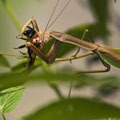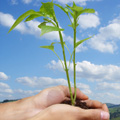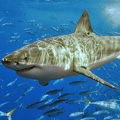Welcome to the Knowledge Project.
The Knowledge Project is an archive of hundreds of articles across a wide range of topics, from basic ecology to evolution. Articles were created through a "Knowledge wiki", a collaboration of scientists and educators, altogether independent of Nature Education Editors. The Knowledge Project was begun as an experimental publishing system for distributing content by the scientific community, in an effort to share knowledge that supports teaching and learning. The Knowledge Project is no longer active, but articles are archived here for educational and non-commercial use.
This page represents the Ecology Topic Room, which contains nine subtopics. This Topic Room is broadly defined, to include both ecosystems and conservation, as well as population ecology and teaching resources. Please see the left rail for other Subjects in the Knowledge Project.























